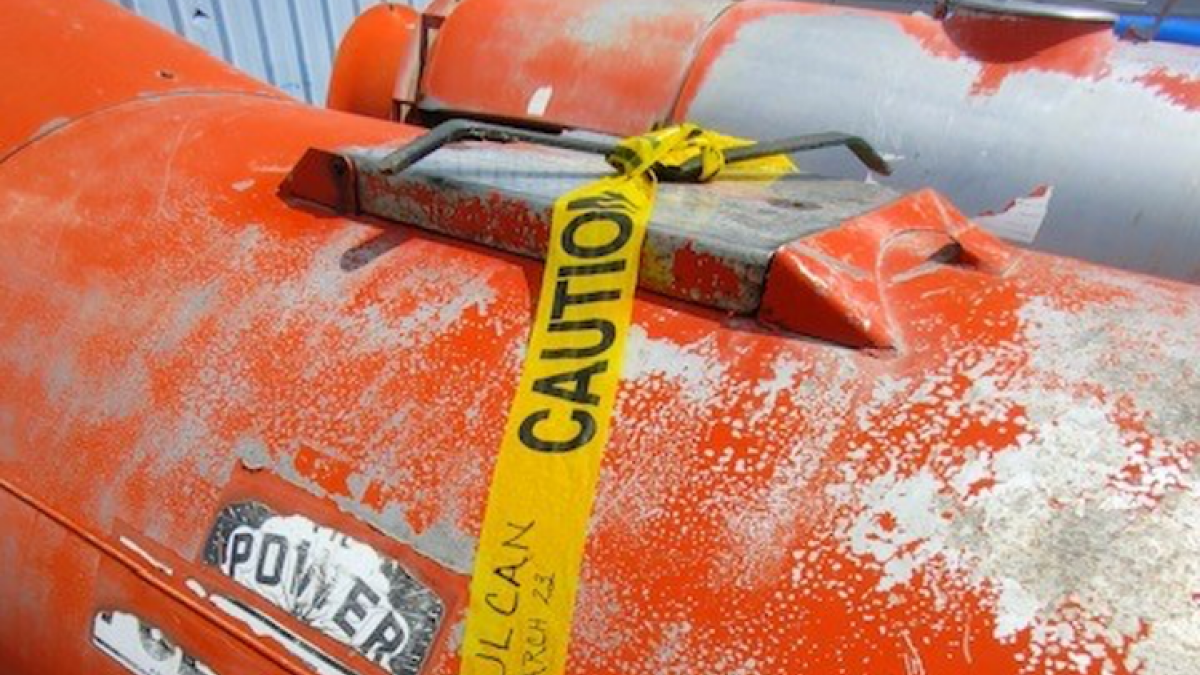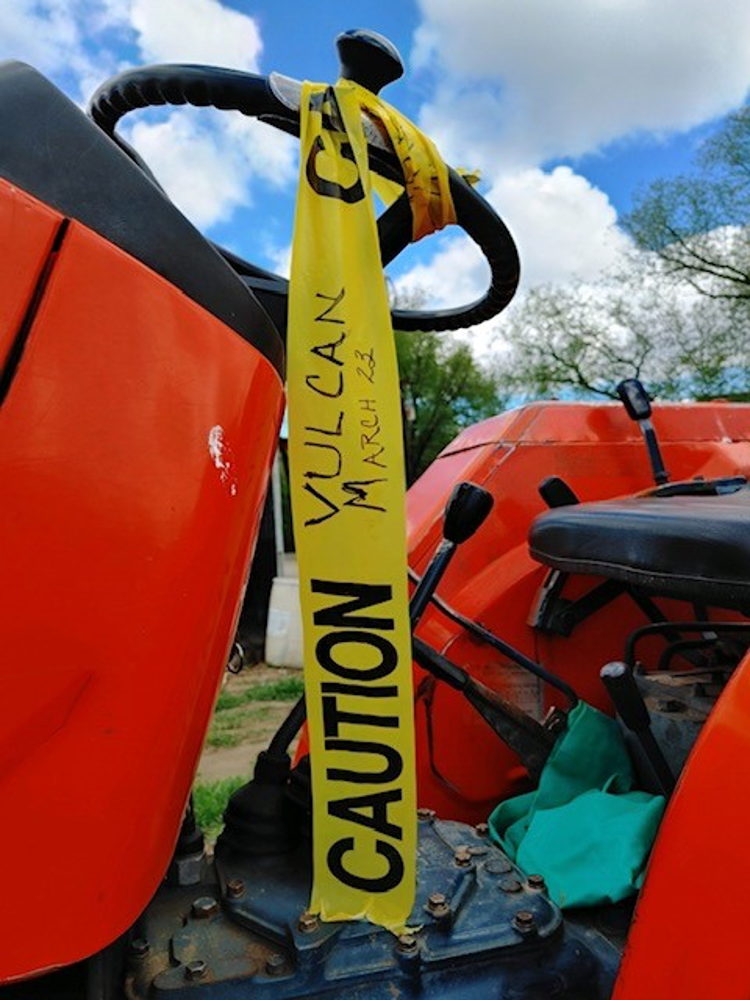
Photo by PNASH
 Take note
Take note
The pesticide products used in the most recent pesticide application are written down on the flagging tape. Anybody using the application equipment afterwards would know exactly what was inside the tank.
 Idea...
Idea...
A mechanic was about to work on an application equipment and was concerned that he didn’t know the chemical products that were last used. He didn’t have access to the pesticide application records and if the applicator wasn’t working on that day there wouldn’t be any way to obtain the information.
 Setup & use
Setup & use
- Write down the pesticide products used and the application date
- Tie the flagging tape either on the pesticide tank or on the tractor’s steering wheel
 Alert
Alert
Remove the flagging tape after repairs are completed.
 Supplies
Supplies
- Flagging tape
- Sharpies
 Tips
Tips
- Mechanics should still wear protective gloves, long-sleeved shirts, and work boots when repairing equipment even though pesticide application equipment should be decontaminated after every use.

We hope that you will be inspired you to incorporate solutions into your own training style, develop your own hands-on teaching tools, or discover new practical solutions. We hope that you are inspired to use these solutions in your workplace. Did you try one of the practical solutions or develop a new one? We would appreciate hearing about your ideas and experiences.
Thank you and safe pesticide handling,
PNASH
Contact your state agency for more information on WPS regulations. The content of this website is for informational purposes only. It may need modification to fit your needs or it may not be appropriate for your workplace. Safe use of these solutions is your responsibility. The University of Washington and the Pacific Northwest Agricultural Safety & Health Center is not responsible for any loss or damage resulting from the use of the information provided on this website.
PNASH Project 2016-2021 (CDC/NIOSH Cooperative Agreement # U54 OH007544)
Contact us
Project Email:
PractSol@uw.edu
Project staff:
Maria Tchong-French (habla español)
206 685-6728
